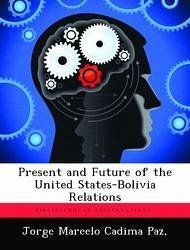Bolivia is one of the poorest countries in Latin America. Nonetheless, it has great geopolitical importance in South America due to its geographical position at the center of the continent and its potential impact on the stability of the entire region. Bolivia has been for centuries one of the countries with the largest indigenous population in the area. Almost half of the population identifies with the native peoples--mainly the Aymara and Quechua--who consider the moderate use of coca leaf as a sacred element in their culture. However, the coca leaf is also used for the production of cocaine in Bolivia and other countries. For many years, political and diplomatic relations between Bolivia and the United States have been dominated by the problems posed by the cultivation and use of coca to the exclusion of other, arguably more important, concerns. In 2005, Evo Morales, was democratically elected as president of Bolivia. President Morales comes from the Chapare province, an area characterized by the cultivation of coca. Moreover, President Morales rose to political prominence after several years of activity as the leader of the coca growers associations. After taking office, the historical and traditional relationship of cooperation between Bolivia and United States has suffered a series of setbacks. Tensions have arisen over his approach to the coca problem. The United States government sees all coca products are destined for drug trafficking; ignoring the traditional cultural and religious aspects of traditional Bolivian culture. In contrast, the Bolivian government argues that coca is mainly intended for traditional consumption (ignoring drug-related issues). Relations between the two countries have been stressed for some time; but while there are signs of rapprochement, they remain marked by perceptions and policies associated with the coca problem. This thesis offers recommendations that would guide the bilateral relationship in a more fruitful direction.
Hinweis: Dieser Artikel kann nur an eine deutsche Lieferadresse ausgeliefert werden.
Hinweis: Dieser Artikel kann nur an eine deutsche Lieferadresse ausgeliefert werden.








